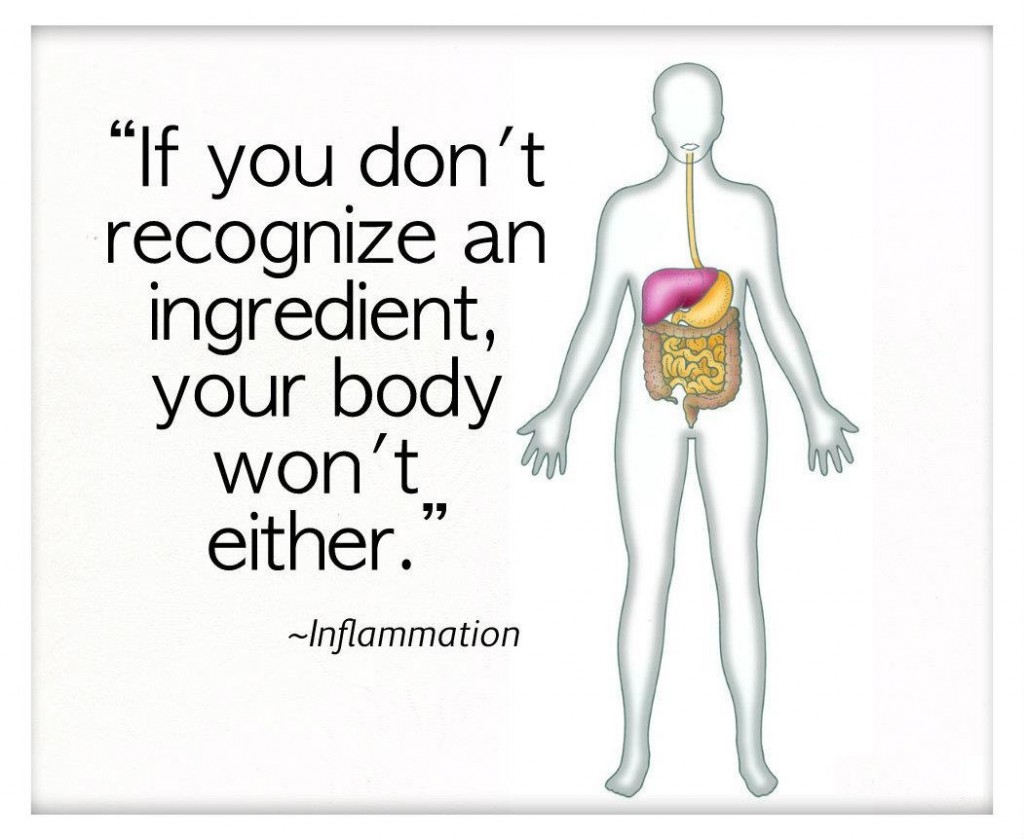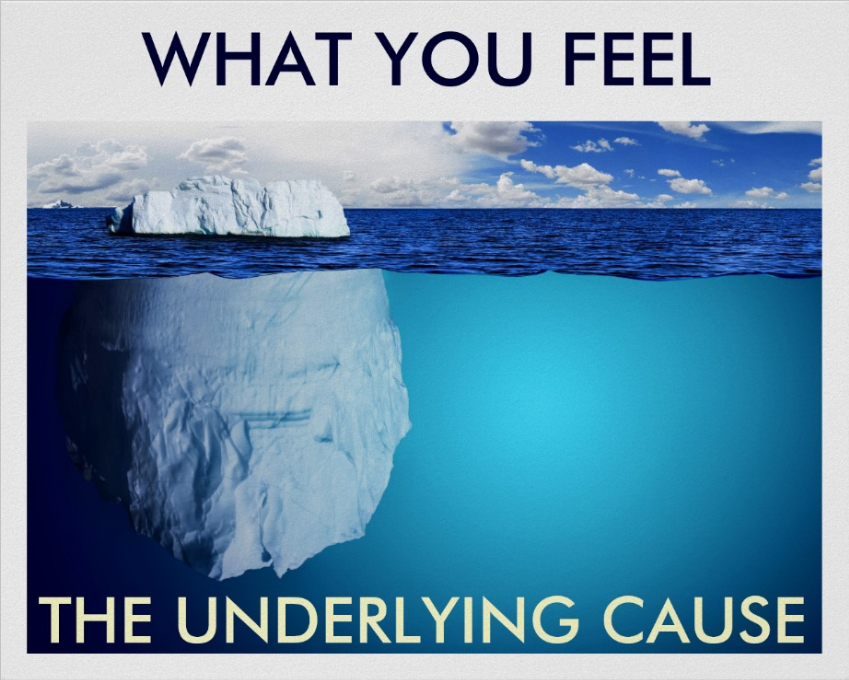
Our lifestyle is so far off track – particularly from a dietary perspective -that nearly all people today are living in a state of unhealthy, chronic inflammation. It’s no wonder that we’re seeing ever-increasing rates of inflammatory related conditions and diseases. Chronic inflammation is an issue because it results in putting our body into a reactive mode sustained over time that results in destructive physiology. In other words, chronic inflammation could be described as being sick all the time, throughout the body.
The good news is that it’s almost always caused by our lifestyle choices. There are a number of choices that we can make (or not make) that will result in an inflammatory response within the body.
Foods That Cause Inflammation
- Processed Vegetable Oils: These are some of the most chemically altered foods in our diets, yet they get promoted as healthy. They cause disease, and they’re in everything (think soybean, corn, sunflower, safflower, etc)
- Grains: Bread, cereals, pasta, pizza, bagels, crackers – aka the foods most people eat on a daily basis.
- Sugars (and foods that act like sugar): Our bodies are not meant to break down as much sugar as we consume. (think bread, cereals, pasta, pizza, bagels, crackers – got it?)
How Our Lifestyle Contributes To Inflammation
Stress is also a major contributor to chronic inflammation for many people; stress results in a cascade of metabolic responses within the body, lead by cortisol, the chief stress hormone. Stress creates a perfect storm of disease-producing reactions, lead by an inflammatory response – causing increased blood pressure, heart rate, blood fats, insulin resistance, along with decreased immune function, digestion, reproductive hormones, and serotonin.
There are times when the body’s stress response is appropriate or healthy; for example, a normal or healthy stress response occurs when we stress our bodies during exercise, or get chased by a mountain lion; the body is designed to endure or cope with these relatively brief periods of stress. It becomes inappropriate or unhealthy when the stress is induced from unnatural things (bad foods, stress from bad relationships, bad jobs, lack of sleep, etc.), and/or when stress occurs over sustained periods of time (i.e. long-term stress from our hectic, over-scheduled, digitally demanding, sedentary, debt-laden, traffic-stuck lives).
How To Avoid Chronic Inflammation
- Significantly reduce your intake of processed foods. By avoiding processed foods, you get extreme benefits because you avoid processed vegetable oils, sugar, and flour, ALL of which promote inflammation in the body (along with directly or indirectly causing obesity, diabetes, cancer, heart disease, autoimmune, and dementia disorders).
- Stop eating sugar and foods that act like sugar
- Stop eating grains (grains present a triple threat – in addition to promoting inflammation, grains promote high insulin levels and intestinal permeability or leaky gut syndrome, which leads to a whole host of conditions)
- Eat lots of organic plant foods (aim for more vegetables than fruit each day)
- Eat pastured animal proteins (not feedlot, grain-fed meats)
- Eat healthy fats – this includes coconut oil, raw nuts, avocado, butter from pastured cows, meat from pastured animals, wild-caught fish.
- Exercise regularly and to the point of exertion. BUT when going for exertion, short-interval, high intensity is what you’re after, not sustained endurance exercise – meaning functional training type of exercise such as CrossFit or hour-long Bootcamp classes are what’s recommended, not training for marathons, or going to the gym for 90 minute sessions on a treadmill or bike.
- Supplement with a high-quality omega-3 fish oil which helps to balance the critical omega-6 to omega-3 ratio in the body (people today get too much omega-6 from vegetable oils, grains, and grain fed animals; and disruption in the omega-6:omega-3 ratio leads to inflammation, disease, etc.).





